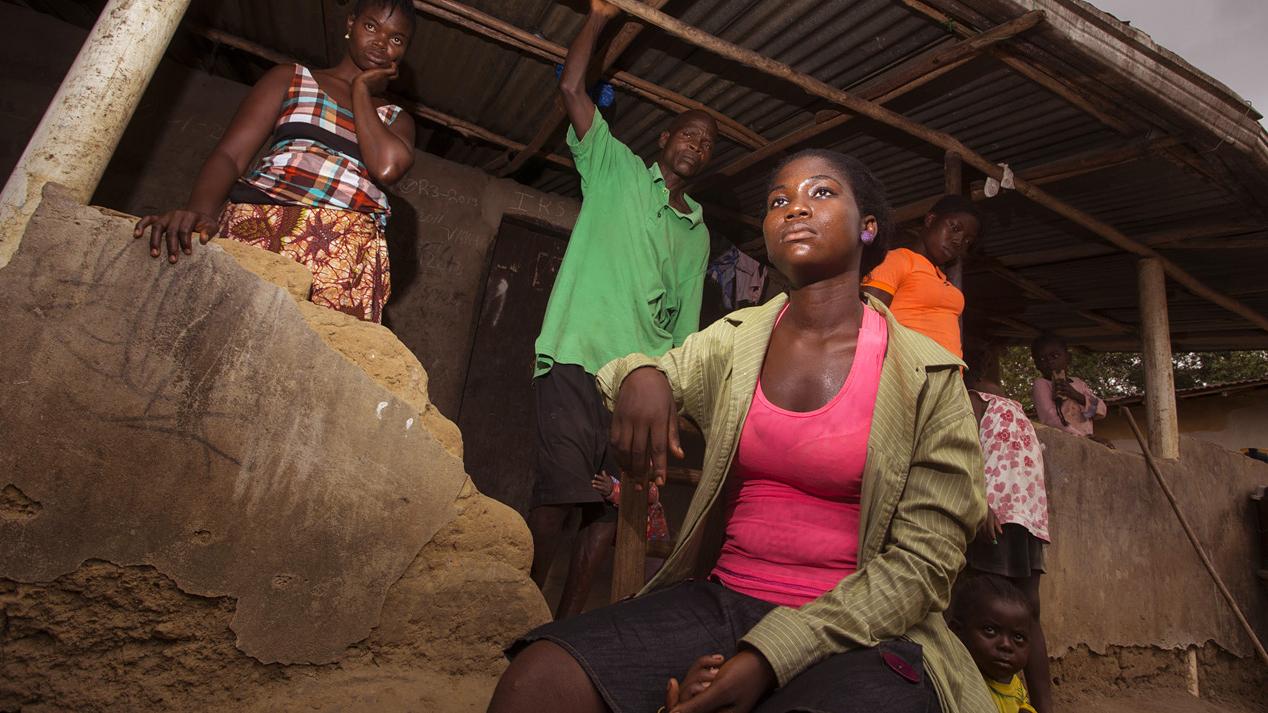In the small Liberian town of Freeman Reserved, community members say 23 people died in the Ebola Treatment Unit between September and October 2014.
Their surviving family members, many of them women, now face stigma and fear from the community.
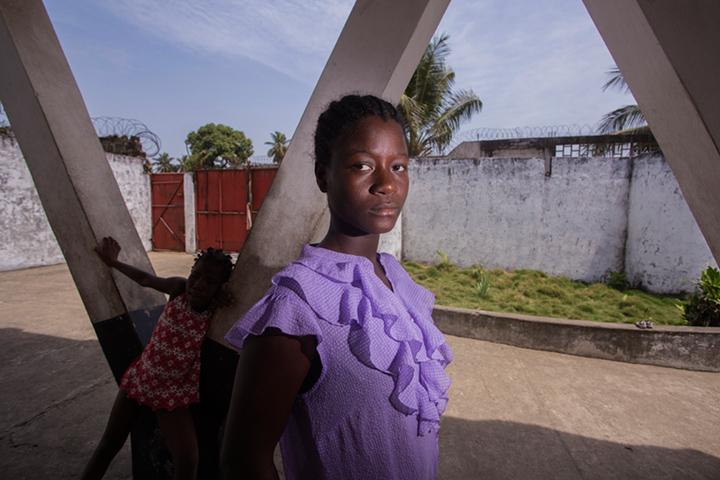
Marcie Cooper, 14 (right), and her sister Ruth, 9, lost their parents to Ebola in 2014. After their parents died, Marcie and Ruth were quarantined and taken care of by a family member until a local NGO deemed their home environment to be abusive.
They are now waiting to be transferred to another family member at a transition home in Paynesville, Liberia.
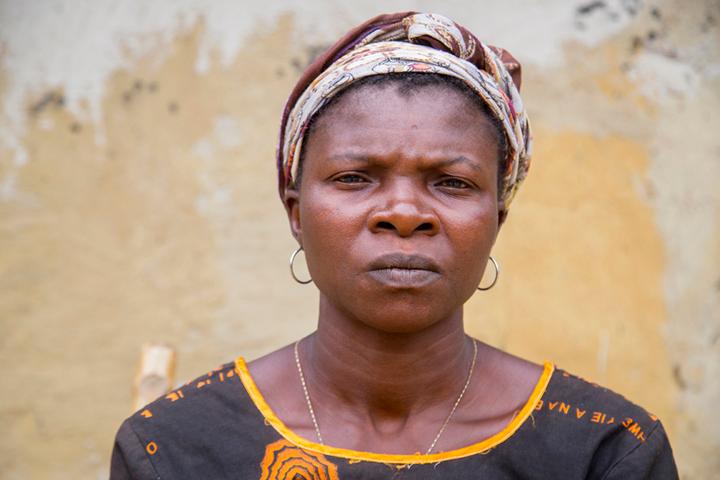
“The Ebola crisis started at my house in September 2014," Gorma Dola said. "My family and I did not know that Ebola was in Liberia until it wiped out four members of my family. It all started with my mother, when she got very ill and I was taking care of her [bathing and feeding her without protection]. She was sick for two weeks and died later in early October 2014."
"After she died, we bathed the body, dressed her and buried her. Three days later, my father became very ill and died one week later, and the community members buried him. Three days after my father died, I started to feel weak, with fever, headache, diarrhea and vomiting."
"The community nurse was called to treat my two-month-old baby and me. I wasn't improving at all after three days of treatment. My eyes became very red and the baby also had fever. My husband decided to call the ambulance from Monrovia to take my baby and me to the ETU (Ebola Treatment Unit). On arrival, my child died, and I was admitted and tested postitive."
"My entire familiy, excluding my husband and little daughter Hanna, four, got sick. Four of my family members were also admitted to the ETU and tested positive. At the time my entire family was sick, the community members began to be afraid of us."
"Our two closest neighbors [who participated in the burial ceremony of my mother and father] also died. People started to blame our family for bringing Ebola into the community. My sister and other three children survived and were discharged from the ETU."
The high level of stigmatization from community members led Ebola survivors in Freeman Reserved to establish a survivors club to support one another.
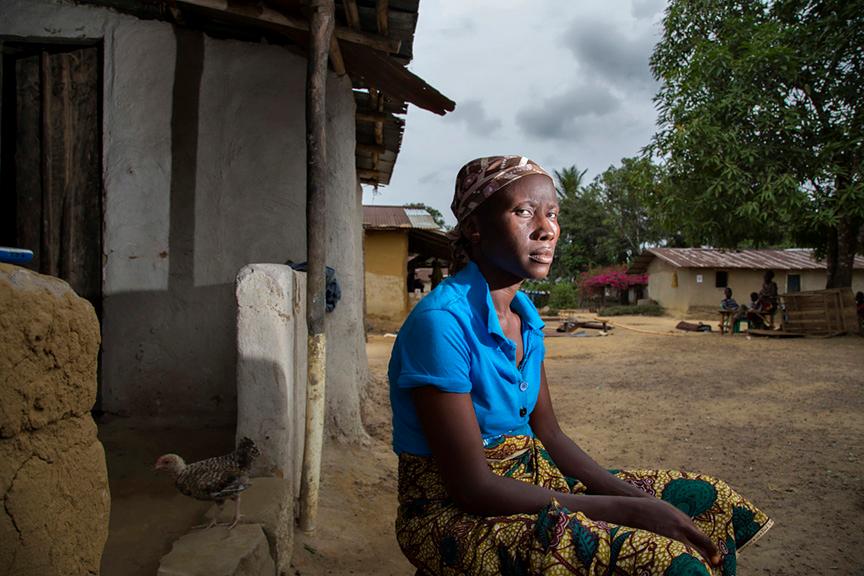
"I am a permanent citizen of Freeman Reserved with four children," says Mary Kollie. "I am living in a rented house. The house owner got sick and died on September 18, 2014, in the house where we lived. Everyone in the house was quarantined at the school building for 21 days.
While we were in the school, my 12-year-old daughter, Beatrice Beayee, got sick and was transferred to the ETU. She died one week later. My other two children and I got sick and were taken to the same ETU where we were admitted for one month and discharged on October 2014. After my two children and I returned home, my husband left us. He was afraid of us and has never come back to see us."
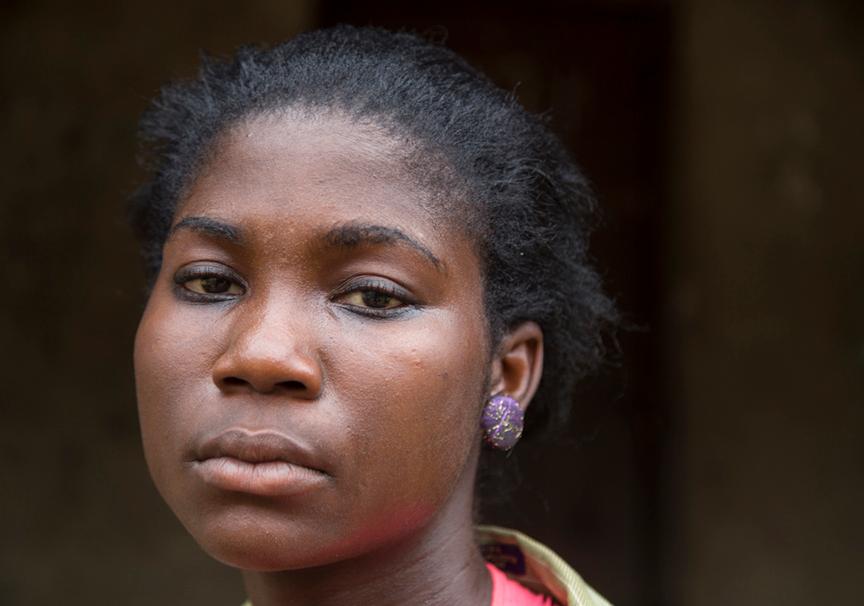
Ebola Survivor Nancy Paye says her husband, Philip Tokpa, 23, "was the owner of the pharmacy in Freeman Reserved and treated a suspected Ebola case. He got sick a few weeks later with a severe headache, body pain and weakness."
"I didn't know that he was an Ebola case, so I started to care for him in our house. Then, his condition became serious and he died on September 19, 2014, in our bedroom. The burial team came for his body the same day. Then my troubles began with body pain, headache and weakness."
Right away, I went to the ETU. I was in the ETU when all my belongings, including my mattresses, were burned. Our pharmacy has been closed ever since then. I don't have a place to sleep with my two children, ages 5 and 2, and they are not in school.”
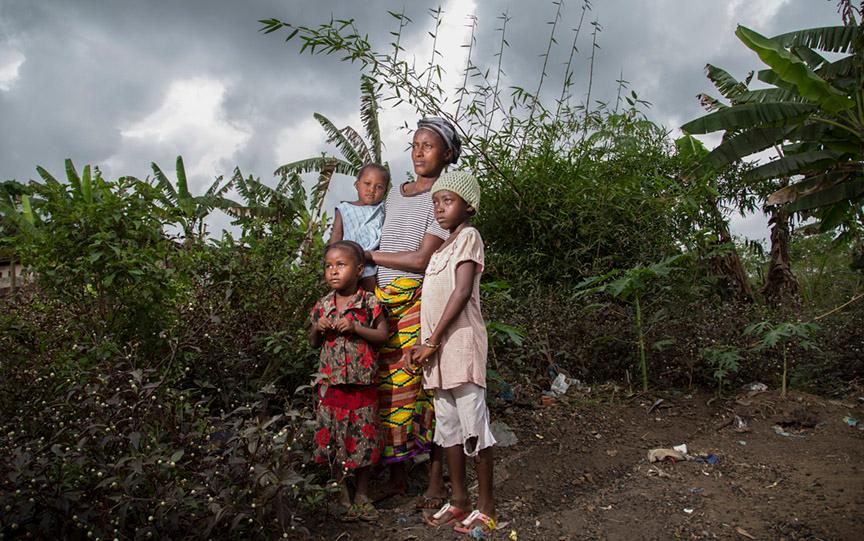
Ebola survivor Sarah Dolo and her younger children, are also from Freeman Reserved. "I was living in Monrovia when my husband got sick in Freeman Reserved and joined me in Monrovia. When I saw his condition, I took him back to Freeman Reserved with the understanding that when he died, he would be burned. I later sent for his two brothers from German Camp, Margibi County.
My husband died on September 18, 2014. After his death, our family was quarantined for 21 days in the school building in Freeman Reserved. His two brothers from Margibi County got sick and died at an Ebola Treatment Unit. We did not see their bodies. My husband left me with eight children — the youngest is three and the oldest is 21."
